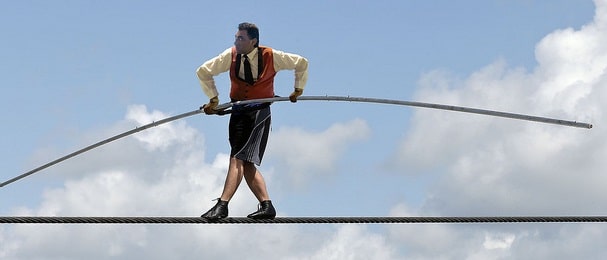Working in a lab can be stressful, there is so much to do, and so little time to do it that we often feel overwhelmed. Sometimes you come into the lab and there are 15 experiments that just need to be done, so you throw on some music and start doing a bunch of them at once. Pretty soon you have one in the centrifuge, one in the water bath, and another in a different centrifuge all while you are making new solutions. Then you take the first experiment out of the centrifuge and can’t remember which wash step you were on. Sound familiar? There is just so much to do that we assume the only way to get it all done is to do it all at once.
The problem is studies have shown that multitasking actually makes you much less efficient, and may even have negative effects on your brain health! The human brain is just not capable of doing multiple things at once, and constantly switching back and forth between tasks actually makes you much less capable of doing either one. In fact, when researchers followed those who thought they were good at multitasking, they found that they were actually much worse than those who didn’t multitask regularly.
So what is multitasking in a lab?
The key to getting multiple things done in the lab is to first realize that the more things you are doing at once, the less efficient you will be; and this includes things other than the experiments. If you are listening to a podcast or music while pipetting, or carrying on a conversation with your lab mate while plating cells, you are multitasking. For most routine experiments, this is probably fine as you won’t need complete focus to seed your cells, however, for the more difficult or complicated protocols it may be best to take out the headphones to give your work your undivided attention. The key here is to decide what concessions of efficiency you are willing to make.
Take advantage of stop time
The key to multitasking in a lab is to understand how to take advantage of stop times during your experiments. I was talking to a colleague about multitasking in the lab the other day and he made the comment, “I think of multitasking as stacking shorter tasks within longer ones and saying that I am technically doing several things at once even though I may be focusing on just one thing at a time”.
While this may seem like an easy concept it is very much a learned skill that you have to master. The hardest part is training yourself to only focus on one task at a time, and to only take on two tasks if the other can be completely abandoned for a good chunk of time.
In general, a 5 minute incubation does not lend itself to another experiment, however a 1 hour incubation is a whole different story! For example, one of the main protocols I perform in the lab calls for a 55 minute incubation – this is the perfect time for me to perform a DNA extraction as it will be completely done by the time my 55 minute incubation is over.
Know your limits
When you are first starting in a lab, you should only perform one experiment at a time, at least until you have a good handle on it. Incubations and down time can be used preparing for the next step you will have to perform, keeping your mind solely on the task at hand. As you become more comfortable, you learn how long various tasks take to perform and when you are able to fit another experiment inside the waiting period of another.
The key here is to go slow and focus on your current experiment. Give yourself more time than you should need to make sure that you don’t have two things piling up at once causing you to miss out on a time-point. Most importantly, when one experiment is incubating, don’t think about it – devote your mind entirely to the task at hand.
Keep accurate notes
Once you start performing experiments inside the waiting time of others, it is easy to forget where you left the first experiment when you come back to it. The key here is to take great notes. Make sure to note which wash you are on, which reagent has been added, etc. before you switch to a new task, so you can devote yourself completely to whatever you will attempt next.
Working in a lab can be overbearing. It is extremely easy to fall into the trap of trying to do everything at once, while at the same time accomplishing nothing. Just remember to take things a little at a time, and schedule out your time so you can take full advantage of breaks that inevitably happen in the middle of protocols. Pretty soon you will learn that you can accomplish a lot during the day just focusing on one thing at a time.
Do you multitask when working in the lab? Share your tips in the comments below!





